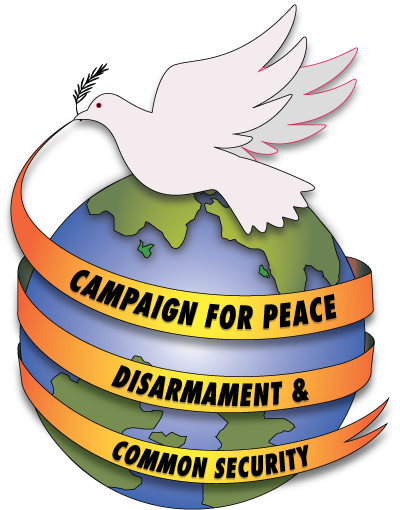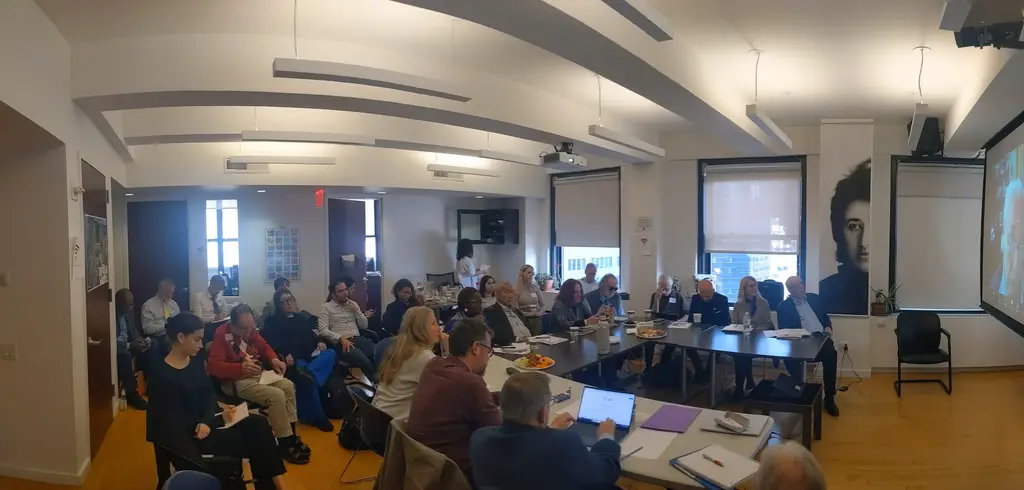Nuclear Weapons and Tectonic Geopolitical Change Conference
Nov. 28, 2023
In Canada, there are four leading organizations devoted to nuclear disarmament issues — Canadian Pugwash Group, Canadian Network to Abolish Nuclear Weapons, Canadians for a Nuclear Weapons Convention and Project Ploughshares — all reaching into different segments of the population. They consider the present nuclear disarmament crisis so grave that they convened for the first time, on October 19, a joint roundtable of experts. This extraordinary meeting produced a report to the Government of Canada which said the present crisis far predates the Ukraine war and must be understood in the broader context of the breakdown and abandonment of nuclear weapons treaties alongside the advent of new destabilizing weapons technologies and modernization of existing nuclear arsenals. Russia’s threat to use nuclear weapons in the Ukraine war has only exacerbated the existential risk of nuclear conflict.
We insisted that the ongoing Ukraine war and the violent hostilities in the Hamas-Israel war ought not to be used as excuses for the failure to advance a workable plan for comprehensive negotiations for the elimination of nuclear weapons, but rather as catalysts to accelerate progress on this urgent objective. During the Cold War, states were able to “compartmentalize” their work for nuclear disarmament in the midst of the exigencies of the East-West divide. Now, in the new multi-polar world, which is fraught with confrontation, states must return to the use of trust-building communication to advance mutual security interests. The goals of nuclear disarmament have been undermined in these perilous times; thus we must re-energize the nuclear disarmament process by repeatedly emphasizing the catastrophic humanitarian consequences of any use of nuclear weapons.
The Treaty on the Prohibition of Nuclear Weapons (TPNW) was built on the base of the threat to humanity and ought not to be scorned by the nuclear weapons states and the NATO leadership. We are very critical of the government’s refusal even to attend MSP2 as an observer. We have urged Canada to play a bridging role between the nuclear and non-nuclear weapons states.
Canada must stand up against the intimidation tactics of those who still falsely claim that nuclear weapons are the “supreme guarantee” of security. Canada must join the overwhelming call by the international community for urgent progress towards the total elimination of nuclear weapons as the only way to avoid a future catastrophe. With such a determination, Canada could help strengthen the Non-Proliferation Treaty and thus help prevent horizontal proliferation.
Full adherence to the NPT’s disarmament measures prepares the way for the needed common security architecture in the world. In a multi-polar world, common security is the only way to peace — and survival. Canada must re-focus its vision away from reliance on nuclear deterrence and amplify the declaration issued by the G20 that any threat or use of nuclear weapons is “inadmissible.”
Comprehensive nuclear disarmament is the approach civil society leaders are taking in Canada. To this end, we are advocating immediate action in three main areas: 1. The immediate resumption of bilateral talks between Russia and the U.S. to conclude a follow-up agreement to the New START prior to its expiration in 2026. 2. Promotion of No-First-Use policies to reduce the saliency of nuclear weapons in national security policies. 3. Advocating de-alerting of nuclear weapons to insert a firebreak for nuclear use.
*************
Finally, a personal word. My bond with Hiroshima and the hibakusha started when I was a young parliamentarian and visited Hiroshima for the first time. I saw, in the museums, photos of entire blocks completely obliterated, the charred clothing, and the depictions of survivors, their burnt skin hanging from their arms and heads. What made the horror even more unbearable was a large globe in the centre of the museum showing all the places nuclear weapons are stored, ready to inflict the same suffering all over again.
We must not allow these instruments of blatant evil to go on mocking the hibakusha. We must not allow politicians to continue pretending that we can escape catastrophic humanitarian consequences from the use of even one nuclear weapon. We must not allow Canada to ignore its responsibilities to work to change NATO’s outmoded nuclear policies and support the Prohibition Treaty.
Nuclear weapons are immoral and illegal. The abolition of nuclear weapons is not just a lofty goal, a noble aspiration, an idealistic thought. It is the irreducible essential for survival. It is the paramount human rights issue of our time. We must never stop saying this.
The nuclear planners, fortified by the military-industrial complex, constantly rebuff us. But we would be false to the memory of Hiroshima if we allowed this rebuff to diminish our efforts. The nuclear planners want to blur public opinion into accepting the inevitability of the strategy of nuclear deterrence. But we would be false to the hibakusha if we did not expose the fallacy of this military doctrine. The nuclear planners want to smother our consciences. But we would be false to the long arc of justice if we did not keep proclaiming that the abolition of nuclear weapons is the prerequisite to peace in the 21st century.

